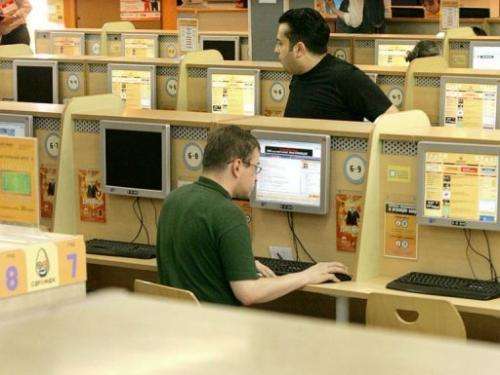Russia puts first sites on new Internet blacklist

Russia on Thursday put into force a new law on the Internet that allows the government to block websites with banned content, prompting fears that it will be used to suppress free speech.
The law, which was hastily voted in by the parliament despite opposition from major Internet companies, is officially intended to protect children from viewing unsuitable content.
It targets sites that contain child pornography, information on drugs or calls to commit suicide. It also includes sites that a court has ruled extremist.
But critics say its wording could be exploited to block opposition websites by planting banned material, potentially shutting down the most lively forum for political debate in Russia.
"We are forced to conclude that no political will exists to resolve the law's contradictions and to eliminate those that pose threats to freedom," Reporters Without Borders said in a critical statement.
Even the communications minister has warned that the law could be used to block a resource such as YouTube in Russia.
The government media watchdog opened a website, www.zapret-info.gov.ru, that will publish the list of banned sites.
It said its experts had blacklisted six sites containing child pornography and that the owners had been informed by e-mail.
Its website does not reveal which sites, since users must enter an exact address to check whether a page or a site is listed.
The owner of the site or web host then has three days to remove content or block access.
If the site is still accessible, Internet service providers are obliged to block it, without any court decision necessary.
The site had been viewed more than 100,000 times and has fought off several hacker attacks, the watchdog said.
When the law was first proposed, the Russian version of the online encyclopaedia Wikipedia protested with a temporary shutdown, while top search engine Yandex.ru ran a black banner on its main page.
The law's wording was then softened to make it less widely applicable.
Yet Communications Minister Nikolai Nikiforov warned in September that the law could be used to block Russians' access to YouTube over its postings of the anti-Islam film that sparked deadly rioting.
"It sounds like a joke, but because of this video ... all of YouTube could be blocked throughout Russia," he wrote on Twitter.
However he later clarified his comment, saying that while this was a theoretical possibility, he expected major Internet resources to abide by the law.
(c) 2012 AFP




















